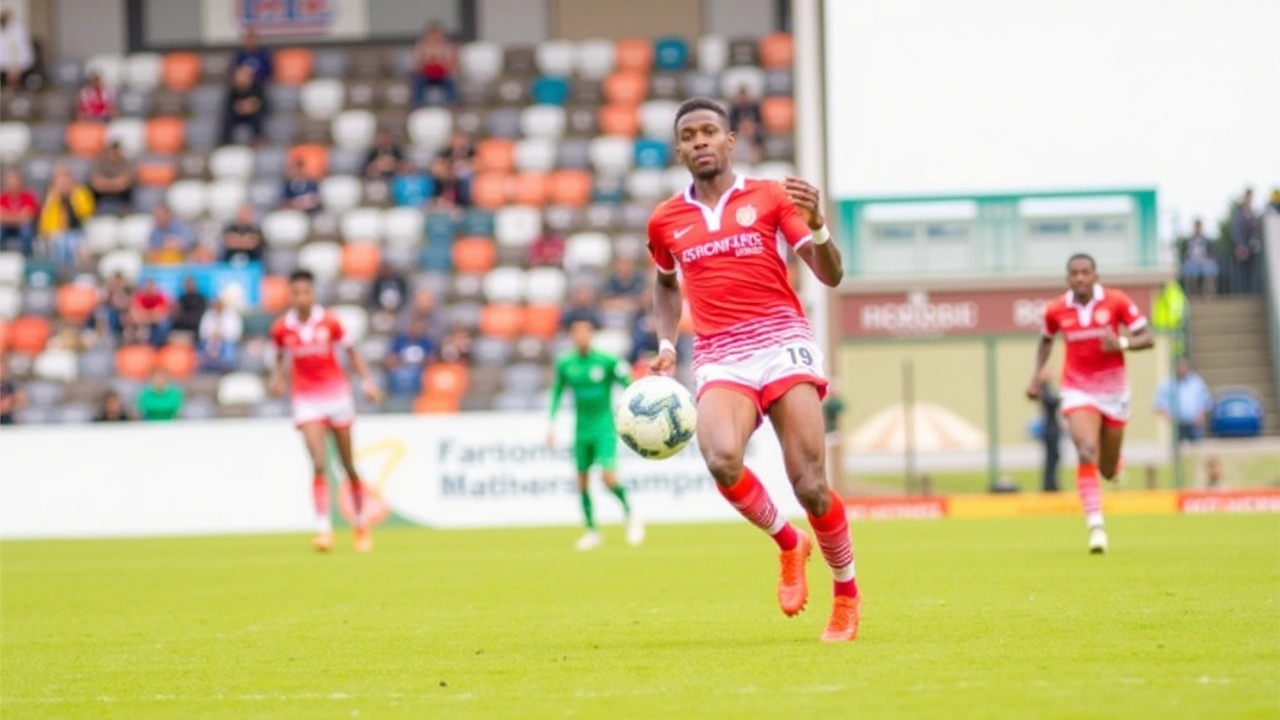Daniel Minjis Advocates for Gender Equality in Kenyan Football
Daniel Minjis Advocates for Gender Equality in Kenyan Football
In a relevant and passionate appeal, Daniel Minjis, the head coach of Kisped Queen's football team, has urged the Football Kenya Federation (FKF) to adopt a more balanced approach towards the development of both men's and women's football. His statements reflect a pressing need for equity in resources, support, and opportunities across the gender divide within the sport. According to Minjis, it is imperative to invest in women's football just as much as men's, advocating that such an approach could lead to significant benefits and improvements in the sport's overall quality and competitiveness throughout Kenya.
Minjis' advocacy is not merely a call for attention but a reflection of years of noticeable disparities. For too long, women's football has been underfunded and undervalued despite the burgeoning talent and potential that exists in local teams. He emphasized that both male and female athletes should be given the same opportunities to train in world-class facilities, receive professional coaching, and have access to financial assistance that can drive their growth and development. This includes everything from grassroots training programs to professional leagues.
In the current landscape of football in Kenya, disparities are glaring. Male footballers often enjoy better training grounds, more substantial sponsorships, and greater media coverage. In stark contrast, female players frequently face numerous challenges, including inadequate training facilities, lack of financial support, and minimal media visibility. These challenges not only hinder the progress of female athletes but also limit the growth and popularity of women's football.
Minjis firmly believes that addressing these disparities can catalyze a positive shift in the football ecosystem. By creating a more inclusive environment, where both men's and women's football are given equal importance, FKF can help foster a more vibrant and competitive sports culture. This would not only elevate the standard of play but also attract more fans, sponsors, and young talent, contributing to the overall growth of football in Kenya.
The Importance of Equal Investment
One of the critical points Minjis stressed is the importance of equal investment in women's football. He argues that when provided with the right resources and support, women athletes are just as capable of achieving great success and bringing glory to the nation. Investing in women's football can yield numerous benefits, including increased participation rates, better performance on the international stage, and enhanced visibility and popularity of the sport.
Furthermore, Minjis highlighted that gender equality in sports is not just a matter of fairness but also of economic sense. Women's football has the potential to attract significant commercial interest, from sponsors to media rights deals, which can generate substantial revenue. This, in turn, can create more job opportunities within the sport, from coaching and management roles to media and support services, thereby contributing to the broader economy.
Challenges and Roadblocks
However, Minjis' call for a balanced approach is not without its challenges. There are ingrained cultural and societal perceptions that women's sports, in general, are of lesser value than men's. Overcoming these biases requires concerted efforts from various stakeholders, including governing bodies, sponsors, media, and the public. It calls for a shift in mindset, where women's sports are seen and celebrated with the same enthusiasm and respect as men's sports.
Another significant challenge is the allocation of resources. In many cases, sports funding is limited, and prioritizing where and how these funds are used can be contentious. Nonetheless, Minjis argues that strategic investments focused on equitable resource distribution could lead to long-term benefits that outweigh the initial costs. He suggests that FKF should create specific programs and initiatives aimed at developing women's football, alongside continuous monitoring and evaluation to ensure these programs' effectiveness and efficiency.
Additionally, the lack of adequate media coverage for women's football segments it from mainstream visibility, further perpetuating inequality. Minjis calls on media houses to play their part in this transformation by giving women's events, matches, and stories the same platform as their male counterparts. Media visibility is crucial in building the popularity and commercial viability of women's football.
A Vision for the Future
Minjis' advocacy is timely given the growing global momentum towards gender equality in sports. Countries across the world are increasingly recognizing the value of investing in women's sports, and Kenya has the opportunity to lead by example on the continent. By adopting a balanced and inclusive approach, FKF can position Kenya as a trailblazer in gender equality within African football.
Looking ahead, Minjis envisions a future where young girls and boys in Kenya can dream of becoming professional footballers, knowing they have equal opportunities and support irrespective of their gender. He imagines a thriving football ecosystem where women's matches are as eagerly anticipated and celebrated as men's, where female athletes are household names, and where football truly represents the nation's diversity and potential.
In conclusion, Daniel Minjis' call to the Football Kenya Federation is more than just a plea for equality in sports. It is a vision for a better, more inclusive future for football in Kenya. It is an invitation for all stakeholders to collaborate, innovate, and invest in creating a balanced football ecosystem that can serve as a model for others to follow. By ensuring that women's football receives equal support and resources, Kenya can harness the full potential of its talent pool, enhance the sport's quality and competitiveness, and foster a culture of equality and respect both on and off the field.
